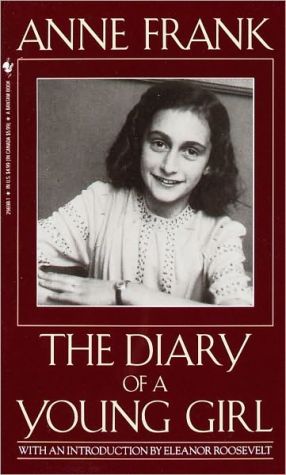Burgermeister's Daughter: Scandal in a Sixteenth-Century German Town
In an era when women were supposed to be disciplined and obedient, Anna proved to be neither. Defying 16th-century social mores, she was the frequent subject of gossip because of her immodest dress and flirtatious behavior. When her wealthy father discovered that she was having secret, simultaneous affairs with a young nobleman and a cavalryman, he turned her out of the house in rage, but when she sued him for financial support, he had her captured, returned home and chained to a table as...
Search in google:
In an era when women were supposed to be disciplined and obedient, Anna proved to be neither. Defying 16th-century social mores, she was the frequent subject of gossip because of her immodest dress and flirtatious behavior. When her wealthy father discovered that she was having secret, simultaneous affairs with a young nobleman and a cavalryman, he turned her out of the house in rage, but when she sued him for financial support, he had her captured, returned home and chained to a table as punishment. Anna eventually escaped and continued her suit against her father, her siblings and her home town in a bitter legal battle that was to last 30 years and end only upon her death. Drawn from her surviving love letters and court records, The Burgermeister's Daughter is a fascinating examination of the politics of sexuality, gender and family in the 16th century, and a powerful testament to the courage and tenacity of a woman who defied the inequalities of this distant age. Yale Review Compelling, suspenseful, and 'sexy'...impossible to put down.
Chapter One\ \ The Story\ \ \ \ On January 27,1552, in the courthouse of the centuries-old south German imperial city of Schwibisch Hall, a notorious case of parental brutality and denial of family inheritance abruptly ended with the announcement of the death of the plaintiff, Anna Sporland, born Anna Biischier (1496/98-1552). Anna was, at her death, in her mid-fifties and had spent fully half her life, since 1525, battling her father, siblings, and city hall. She died impoverished an embittered between the testimonies of the penultimate and the last witness—the burgermeister of distant Rothenburg, who was her first cousin, and the burgermeister of Hall, who led the opposition to her. To the end, she held the spotlight in the internal politics and life drama of Hall.\ In the early 1520s, Anna Buschler seemed destined to a prosperous and serene life, not one of interminable personal and legal conflict. Born into a highly respectable family, confident and exuberant in her youth, and a woman of acknowledged beauty, she had a reputation as the belle of her hometown, and as something of a free spirit. But the center of attention could also be a perilous place in the sixteenth century, and those who put themselves in it flirted with danger.\ Both men and women were then expected to adhere to clearly defined standards of behavior specific to gender, social class, and contemporary community values. On such conformity were social order and civic peace seen to hang. Character and reputation accordingly carried great weight in legal proceedings, which judged present behavior in fight of past, carefully examining a person's life from everyangle.\ Anna was peculiarly vulnerable to such scrutiny. Both in her late teens and in her twenties, she had behaved in a manner scandalous to the society in which she lived. Her story is one of multiple collapsing relationships: between a daughter and a father, a sister and her siblings, a servant and her mistress, a woman and her lovers, a citizen and her town. Twice, in original and unforgettable ways, she brought shame and embarrassment to her family and the city of Hall: the first time, when she deceived her father and incurred his undying wrath, the second, twenty years later, when she defied the city council and provoked its retaliation.\ The whole disputed record of her "scandalous, undisciplined, and reprehensible life" has survived largely intact, thanks to the undying animus of her father and her brother. It is because of their actions that we have the unusual testimony to the events in question of dozens of her fellow citizens and well-positioned outside observers, taken decades later by the imperial court. And her father and brother were the ones who discovered, confiscated, and reserved the extremely rare cache of her love letters—not with one, but with two men—by which her character was impeached before the same court.\ What exactly had this woman done to cause her father, then burgermeister, to denounce her as "an evil serpent" and the government of Hall to declare her a renegade, and in both instances to draw the intervention of the imperial supreme court, Germany's highest? Why did the behavior of one woman rivet the attention and disrupt the lives of so many important people for so long a time? The answers to those questions lie in the internal workings of a distant society and in the inner lives of people who were both like and unlike ourselves.\ Our story is set in northern Europe in the first half of the sixteenth century, when the age of chivalry had passed and the creative period of the Italian Renaissance was nearing its climax. Rome would be tragically sacked And looted by imperial soldiers, many of them German mercenaries, in 1527. But already in the late fourteenth and fifteenth centuries, the comparatively ordered medieval world of knights, priests, and peasants had begun to give way to the more adventurous world of nouveau riche merchants, zealous religious reformers, and politically ambitious artisan guilds in the economically and culturally ascendant urban centers.\ The Black Death, which peaked in 1349 and especially ravaged the cities and towns along the major overland trade routes, ironically helped tip the balance of power from the landed nobility in the countryside to the new bourgeoisie in the cities. In the wake of the plague's devastation, thousands of peasants bought, or simply declared, their freedom from their landlords and departed for the cities, where skilled hands were more in demand and better paid than on the waning manors.\ In the recovering cities, the immigrants found good jobs in urban industries, and increasingly became part of a confident new lay world created by another revolution in these same centuries. Between 1300 and 1500, the number of universities more than tripled across Europe, and the opportunities for vernacular secular education multiplied as well to meet the need for educated personnel in urban businesses and governments. The printing press became a reality because of the new multitudes of literate laity. A scant fifty years after Johann Gutenberg, bankrolled by his father-in-law, had opened his print shop in Mainz (in the 1440s), two hundred presses were in operation across Europe, sixty of them in Germany alone. in the late fifteenth and early sixteenth centuries, these various forces had created a bourgeoisie more knowledgeable about and involved in their world than ever before, and ready to challenge both the old nobility and the old Church for control of their live.\ Nowhere was such lay self-confidence holder than in Germany, the site of our story. Emperor Maxmilian I (1493-1519) attested the new unruly spirit of the age when, in a famous comparison of his rule in the Holy Roman Empire with that of the kings of Spain and France in their lands, he described himself as a "king of kings."
\ Atlantic MonthlyA very considerable history by an accomplished scholar.\ \ \ \ \ New York Times Book ReviewA splendid and very unusual entry into the private life of the distant past.\ \ \ Yale ReviewCompelling, suspenseful, and 'sexy'...impossible to put down.\ \ \ \ \ Publishers WeeklyOzment (Protestants: The Birth of a Revolution) brings a medieval drama to life in this meticulously researched and engrossing narrative of the 30-year lawsuit between Anna Buschler (1496/98-1552) and her family. Anna's father, Burgermeister (mayor) of the German town of Schwabisch Hall, banished his daughter from the family home in 1525 after he read letters that confirmed her sexual involvement with two men. Anna responded by suing her father, and after his death her siblings, for disinheriting her. Ozment details the twists and turns of Anna's legal battle, which continued during her two marriages and resulted in her being shackled to a table for six months by her father and later jailed briefly by the town council. She escaped from both incarcerations. Although Anna was promiscuous, Ozment convincingly argues that the Burgermeister's treatment was overly severe, and Anna emerges in this account as an unusually resourceful and feisty woman. Illustrated. History Book Club selection. (Mar.)\ \ \ \ \ Kirkus ReviewsAn absorbing true story of sexual intrigue, legal battles, filial piety, and social history in 16th-century Germany.\ Ozment (History/Harvard, Protestants, 1992) recreates the fascinating confrontation between a respected bürgermeister and his free-spirited daughter. Hermann Büschler was a wealthy councilman in the southern German city of Schwabisch Hall. His daughter Anna provoked his wrath and that of the town with her flirtatious and scandalous behavior; in particular, she juggled affairs with two men, one a Jew. When her father discovered Anna's cache of love letters, he resolved to disown her. Anna, in turn, charged that her father was negligent in contracting a proper marriage for her and insisted on claiming her inheritance. So began a battle that lasted over 25 years. The tale unfolds within the context of a Germany driven by the Protestant Reformation, recovering from periodic recurrences of the Black Death, and struggling to confront the overwhelming issues of the early modern age. Ozment, utilizing Anna's love letters and surviving court documents, weaves a complex human story of the woman, her lovers, and her family. No less important as characters are the townspeople, who see Anna as transgressing time-honored norms of filial and sexual behavior. Successfully disowned by her father, an outcast in the community, Anna spent the remainder of her life in a fruitless effort to recover her inhertitance. Ozment clearly examines how Anna's case reflects issues of class and gender, and concludes that "in that distant age, as in our own, rationality and madness accompanied one another, the one as prominent and real as the other." Less convincingly, the author argues that Anna's story reveals that women were not "powerless victims of male rule," but able to define themselves and "leave their mark on history."\ Undoubtedly, though, the situation of women was more complex than previously thought, and this riveting drama of an ambiguous heroine sheds light on that bygone age.\ \ \








